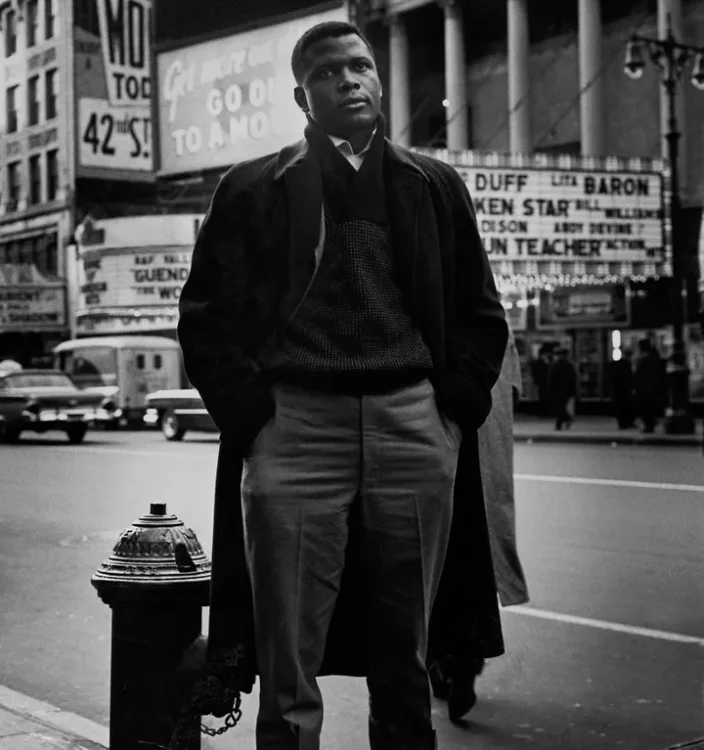‘Sidney’ Tackles The Not-So-Comfortable Conversations About A Black Cinema Icon
Share
Explore Our Galleries
Breaking News!
Today's news and culture by Black and other reporters in the Black and mainstream media.
Ways to Support ABHM?
By Candice Frederick, HuffPo
It’s not about sensationalizing or even tarnishing the reputation of Sidney Poitier. Rather, the new documentary honors his humanity — every facet of it.

Often it’s almost impossible to have a real conversation about a venerable figure amid today’s stan culture — and even sometimes frustratingly discouraged. That’s especially true when it comes to older Black icons who paved the way for those who came after them, and whose less comfortable truths are often pushed aside out of respect.
But director Reginald Hudlin’s “Sidney,” which explores the life and career of the late Sidney Poitier, actually has those conversations. It does so unflinchingly and candidly. And it includes a variety of equally respected heroes of Black cinema who are compelled to reckon with the full portrait of Poitier, a man who both aspired and inspired just as much as he frustrated and disappointed.
We rarely ever really talk about that last part. “Sidney” implores us anyway.
It’s a funny thing too, because for many of us when it was announced that there would be a documentary on Poitier, a few questions immediately sprang to mind: Will it include his affair with “Porgy and Bess” co-star Diahann Carroll, who, like him, was married at the time?
Will it confront the Uncle Tom dialogue that rose during the blaxploitation era that was far less compromising about how Blackness was portrayed on screen? The answer to both these questions is yes and thankfully so.
It’s not about sensationalizing or tarnishing the reputation of a man who burst open the doors of opportunity for Black people in Hollywood and encouraged his contemporaries to advocate for civil rights with figures like Martin Luther King Jr. Rather, it’s about honoring his humanity — every facet of it.
Finish this thoughtful review of the film.
This documentary was a combined effort of Apple and Oprah’s production company.
Follow ABHM’s breaking news page.











Comments Are Welcome
Note: We moderate submissions in order to create a space for meaningful dialogue, a space where museum visitors – adults and youth –– can exchange informed, thoughtful, and relevant comments that add value to our exhibits.
Racial slurs, personal attacks, obscenity, profanity, and SHOUTING do not meet the above standard. Such comments are posted in the exhibit Hateful Speech. Commercial promotions, impersonations, and incoherent comments likewise fail to meet our goals, so will not be posted. Submissions longer than 120 words will be shortened.
See our full Comments Policy here.